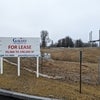More foreign customers are Buying American
By Meaghan O’Rourke and Christina P. O’Neill
Globalization has its rewards for Central Massachusetts and Metrowest businesses. A combination of local expertise in highly specialized, often capital-intensive niche markets, the growing power of the Internet as a sales tool, and the relatively weak U.S. dollar made 2005 a banner year for exporters here, and 2006 is shaping up the same way so far.
Common wisdom holds that overseas competition has hurt U.S. business, particularly manufacturers. But many of the region’s companies, from software makers to biomedical firms to, yes, even manufacturers, see foreign trade as an opportunity.The power of the niche market
For manufacturers in specialty niches, foreign markets represent more opportunity than crisis. Ayer-based Advanced Vacuum Systems Inc. has been exporting vacuum furnaces used to process materials for the aerospace, electronic, auto, and other industries for well over a decade. Steven Levesque, owner and president AVS, says China and India have been the company’s strongest export customers for the past three years, but he’s concerned that China is growing at an unsustainable clip. For now, though, its growth gives it the cash to buy AVS’ products, which are priced from $300,000 to $1 million. AVS was among the first companies in its industry to export. "You learn a lot about other cultures, their expectations and ways of doing business," Levesque says. "Unless you are an expert in foreign business, you pretty much learn as you go."
Accutech, a division of Hudson-based Adaptive Instruments, makes highly specialized wireless instruments used in measuring temperature and pressure. It also provides analog electrical measurements, which are needed in refineries or large industrial organizations. Much of the demand comes from Canada, where Adaptive is one of the only companies to provide the wireless technology. "Our products go hand-in-hand with the need there," says Jennifer Rogers, Accutech’s marketing communications manager.
Worcester-based Walker Magnetics, maker of large magnets for industrial use, exports to Japan, and much of the Asian continent, including China, Taiwan, and Korea. Its products include the large magnets used at construction sites to lift beams and in junk yards to haul metal, as well as the magnets used in large conveyors. The company, in addition to its Walker Scientific division at the Worcester headquarters, has international offices in Ontario, Canada, the Netherlands and the Czech Republic, as well as in California, Wisconsin, Ohio and Pennsylvania. It exports magnets to Asia and vacuum furnaces to Asia, China and India.
Walker Scientific President Richard Longo says Korea, Thailand, Singapore Malaysia and other Asian manufacturing countries are the best customers for Walker Magnetics’ products because they’re the fastest-growing spots for regional manufacturing. International sales make up between 10 and 15 percent of the company’s total business. Between 2000 and 2003, those sales increased 25 percent from its Worcester operations alone. Companywide, sales increased between 65 and 70 percent.
Morgan Construction Co., a Worcester-based steel mill designer, reports that even with the domestic steel industry booming, more than half of its business comes from outside the U.S., according to Vice President Daniel Morgan. Its few competitors are based in Europe, making Morgan the only domestic supplier of steel mill infrastructure. With many clients in North America only needing upgrades and modernization of mills that they already have, Morgan is finding new-mill business abroad. Asia, South and Central America, South Africa, India, Russia and Belarus buy from Morgan Construction.
The boom in biomedical exports
Biomedical products are one of the leading export categories for Massachusetts. With about $20 million in sales and 60 employees, Luxtec of Boylston makes surgical headlights and cables, and is expanding in the digital imaging segment to document live surgeries. It notes a steady 20 percent annual growth in international revenue for the past five years, increasing from 16 percent of its total sales to 22 percent.
Craig Stevens, Luxtec’s vice president for international sales development, says 80 percent of the company’s business comes from Europe and Asia. Countries that spend a large percentage of their GDP on health care are the best customers: the European Union, Japan, Australia, Singapore and Korea. Stevens notes that regulatory issues present the biggest obstacle to market entry.
Marlboro-based Cytyc Corp., which makes medical devices and diagnostics in the women’s health field, says its largest international market is Europe, followed by Asia/Pacific. While its international sales comprise just over 10 percent of its total sales, the international market is growing rapidly. Cytyc posted $53 million in international sales in 2005. That represents an approximate 400 percent growth rate over 2000 international sales.
The Internet versus "feet on the street"
Luxtec’s Stevens says when he started out in international business development in 1989, his only search tools were the Yellow Pages. That search method was full of risk. It was difficult to qualify overseas distributors, and language and logistics barriers were considerable. But Luxtec has benefited greatly from programs offered by U.S. Commercial Service (see sidebar), Stevens says. Luxtec used the agency’s Gold Key program, which brings prospective exporters together with foreign distributors and buyers, to gain entry into Russia, one of several countries in which it’s testing new products. The cost of Gold Key to Luxtec ranges from $500 to $800. "You can’t fly there for that," Stevens observes.
David Harding, president of Cytyc International, says the company has had the most success selling directly into foreign markets with its locally based international sales and marketing group. The company also uses a network of distributors where there is higher risk or lower potential for a direct sales force.
Internet-based trouble-shooting services extend local companies’ market reach. AVS offers computerized problem-solving over the Internet for much of its equipment.
Westboro-based Stratus Technologies Inc., which makes fault-tolerant systems, has seen international revenue growth of 36 percent overall since 2003. Stratus has been in foreign markets since the pre-Internet days of the early 1980s. Stratus sells direct in Europe but works through distributors in Asia, South American and Africa; in Japan, it uses both strategies. "Our overseas operations are the feet on the street that create demand and awareness," states CFO Robert Laufer.
Weak dollar, strong sales
The weakness of the U.S. dollar relative to foreign currencies makes U.S. goods more attractive than European-made goods for many overseas buyers. "Bad for sightseeing, but good for business," says Morgan Construction Co. Vice President Daniel Morgan about the dollar. Coupled with increasing demand for U.S. goods from developing countries, the more competitive dollar means sales increases for Massachusetts exporters.
From Stratus Computer’s viewpoint, the weak dollar is a wash, since most of the company’s competition is with other U.S.-based companies that are also selling to overseas markets. Cytyc says foreign exchange rates have not had a significant impact on its commercial success in its various international markets.
New buying power
The emergence of developing countries as industrial consumers of U.S. goods is leveling the playing field for the region’s companies. While small manufacturers in mainstream market niches have suffered from the effects of foreign competition, companies with specialties are prevailing by selling their products to countries that have newfound buying power. As many of the region’s most innovative companies are finding out, globalization may take away with one hand, but it gives with the other.
Meaghan O’Rourke can be reached at morourke@wbjournal.com; Christina P. O’Neill can be reached at coneill@wbjournal.com
For business owners considering entering the export market who don’t know where
to start, there are plenty of options. The Massachusetts Export Center (MEC), (http://www.mass.gov/export ), which is part of the Small Business Development Center Network, offers programs to companies of all sizes that are either just getting started in exporting or want to refine their current export strategy. MEC’s step by step programs cover planning, compliance law, market research, participation in overseas trade shows, and export training. The training programs give companies an overview of important issues of legal issues, the details of exporting, international marketing and distribution, and other related issues.
Julia Dvorko, the Central Massachusetts Program Director for the Mass Export Center, says more local companies are seeking export information, and that recent MEC training courses have consistently been sold out. She estimates that there are now approximately 200 local area companies a year showing interest, up sharply from the approximately 80 annually just a few years ago.
Dvorko feels that a better understanding of international business and a more sophisticated view of potential, promotion, and growth is key for much of the recent surge in exporting.
At the federal level, U.S. Commercial Service offers U.S. Export Assistance Centers for small to mid-size exporters. The U.S. Export Assistance program is another organization that can be turned to for advice and support. They tend to work as a counseling and consulting service and work with the Massachusetts Export Center in some of their Export Training Programs.
The U.S. Export Assistance Centers (regional office website is http://www.buyusa.gov/newengland) offer such services as the Gold Key Service and Platinum Key Service. The Gold Key Service (see main story) provides companies with pre-arranged meetings with foreign buyers that may be interested in purchasing the product. The Platinum Key Service is a long-term initiative that aims to develop the market, launch the product, and provide support where needed. Other services offered by the U.S. Export Assistance program range from finding an overseas business partner from already screened companies or doing background checks on others, to granting access to an extensive market research library and performing specific market research for individual companies, to promotion assistance when products are launched. Companies are also able to advertise through the USCS in Commercial News USA, a product catalog sent to United States government offices worldwide, and which has garnered considerable positive feedback.
Bill Davis, of the U.S. Export Assistance Centers of New England, advises that prospective exporters know their product inside and out, and should also have an established domestic marketplace. A steady income through U.S. sales makes the transition to the global marketplace easier. He also suggests looking to Canada and Mexico when first beginning to export. With similar cultures, language barriers falling, and limited duty fees, they can be easy sells, he says.
Meaghan O’Rourke









0 Comments